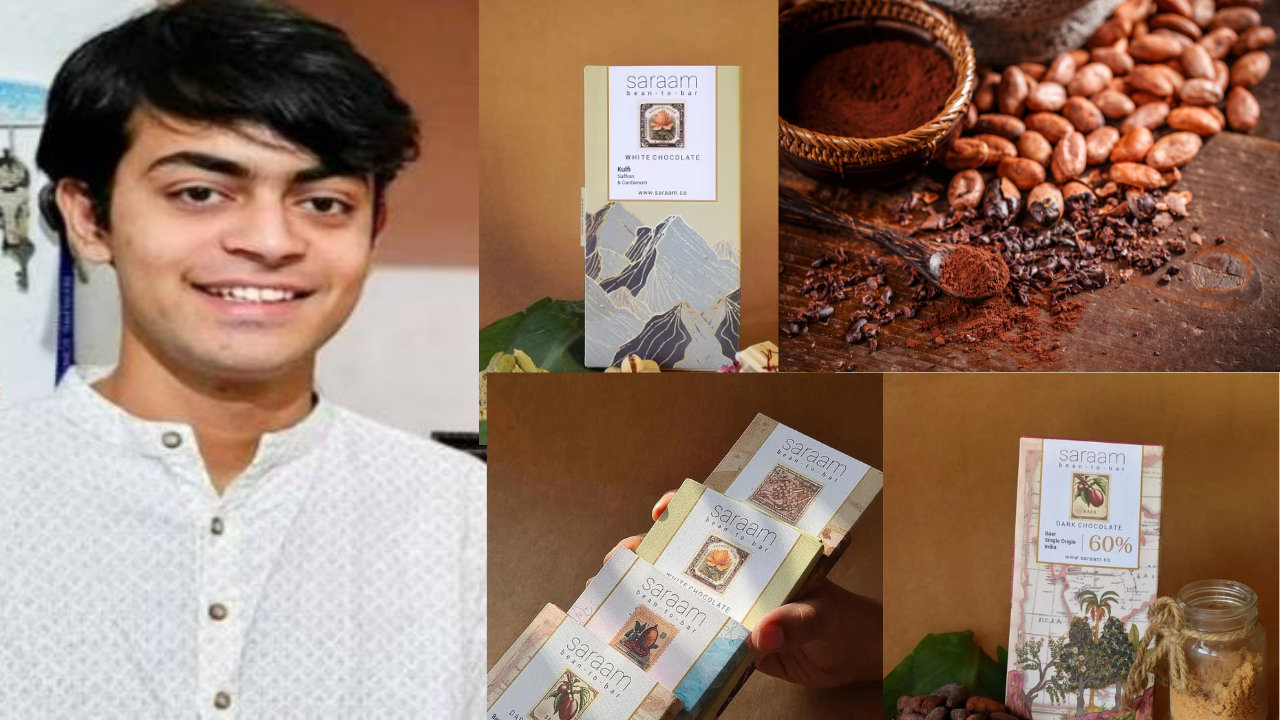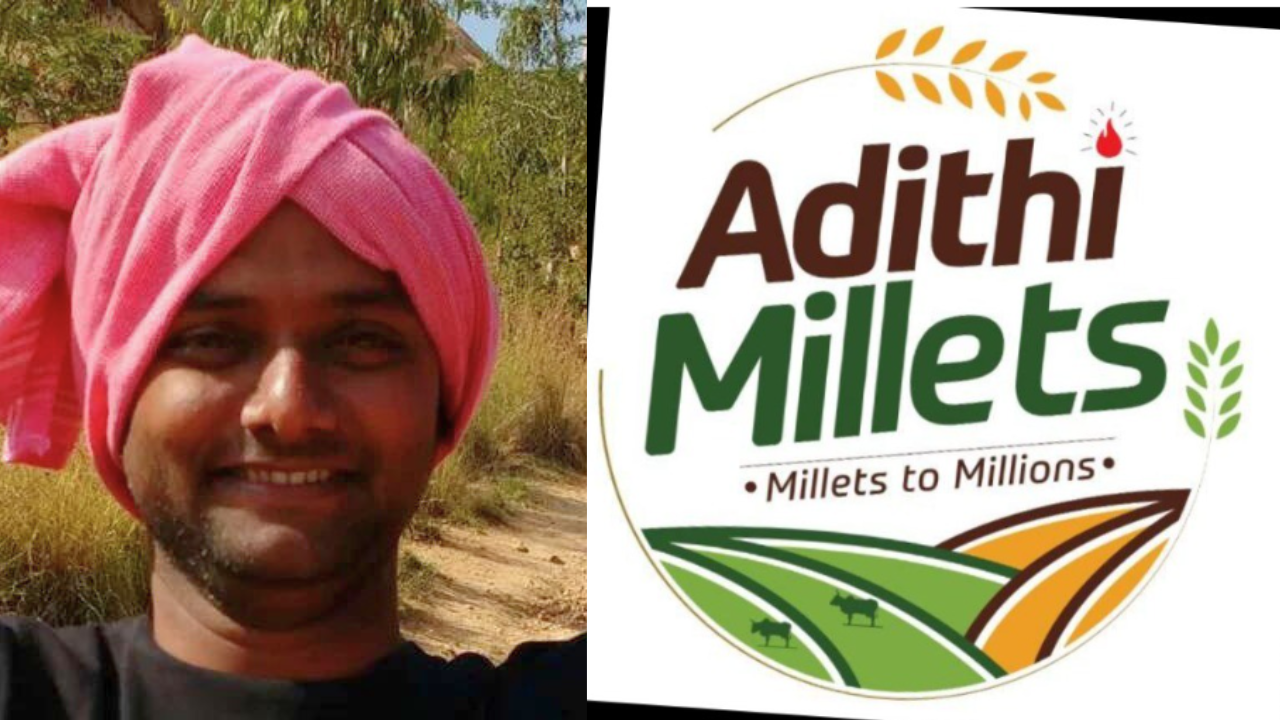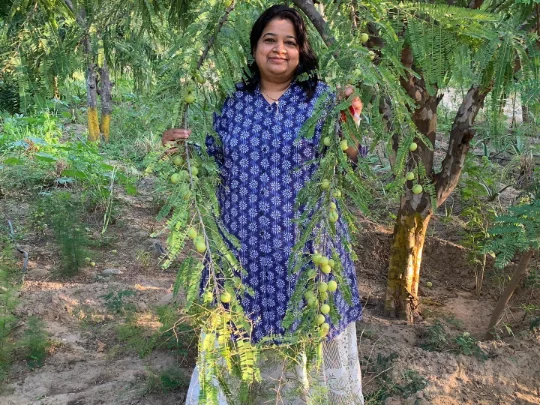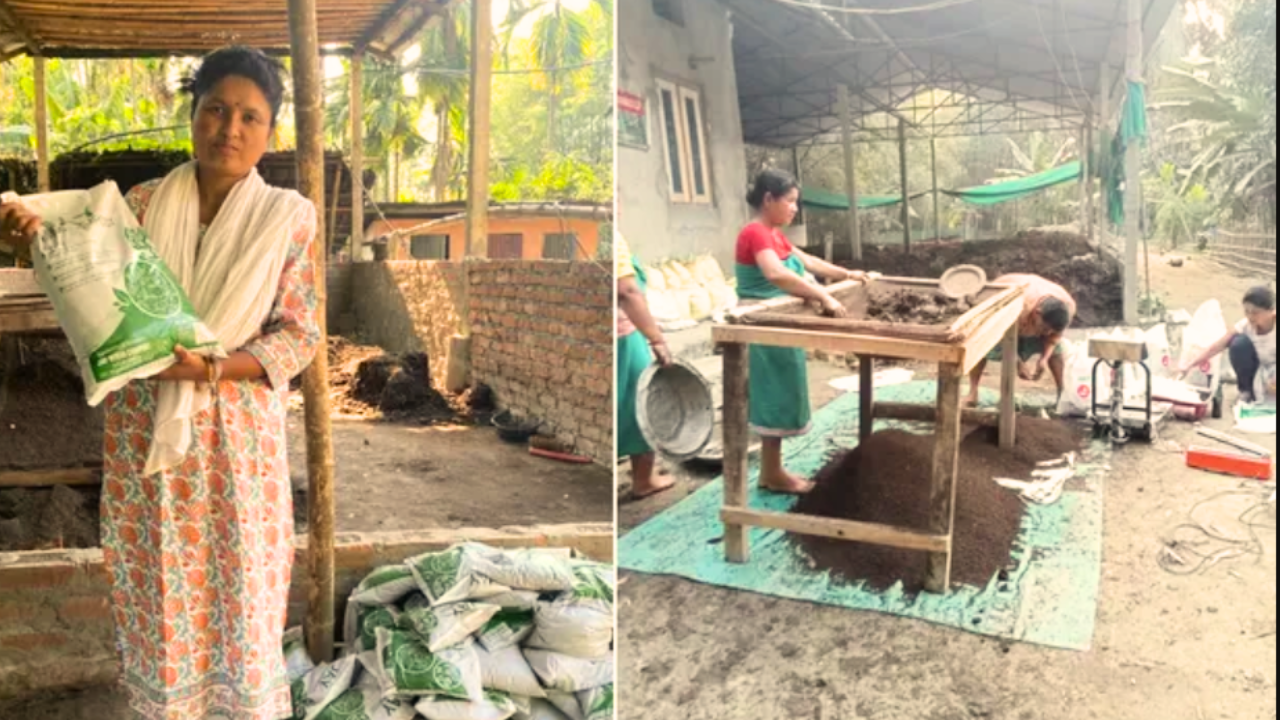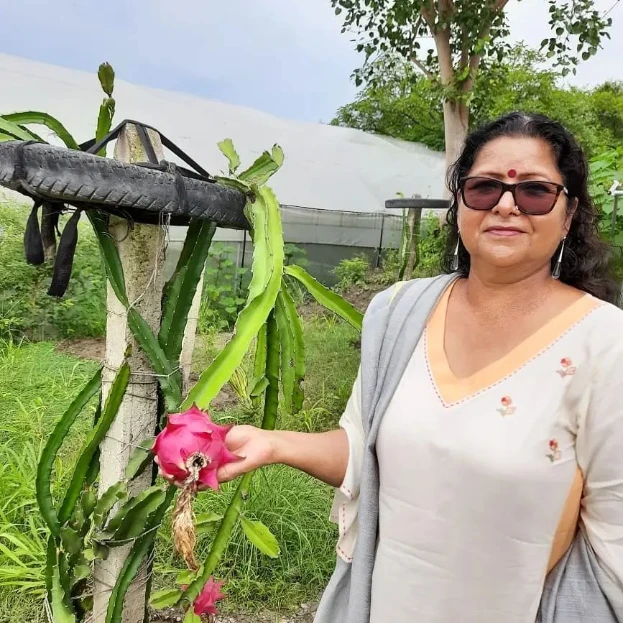Around 2008, when Aakash Thakkar was a teenager, he went with his father to a market called APMC (Agricultural Produce Market Committee) in Vashi, Navi Mumbai. They were there to sell extra special bananas called elaichi bananas and ginger that they had grown on their farm in Karjat, which was about 75km away from their home. Even though their family mostly did farming as a hobby and only visited their Thakkar Farm on weekends, they produced mangoes, bananas, papaya, and other fruits and veggies for themselves.
“We weren’t really planning to sell what we grew. But one time, we ended up with extra bananas and ginger. So, we loaded them into our car and took them to APMC. But when we got there, the traders offered us only Rs8 per kg for the bananas (even though they were being sold for Rs45 per kg) and Rs11 per kg for the ginger. That wouldn’t even cover our transportation expenses,” Aakash remembers.
Disheartened by the low offers, Aakash and his father left without selling their produce. “That’s when we decided that we should take a stand for ourselves and other farmers who work so hard but get paid very little,” he explains.
Aakash finished his studies in 2011 and then started studying Marketing for his MBA at Mumbai University. At the same time, he started working on ‘The Farmer,’ which has now become an online organic supermarket. This store sells fruits, veggies, cereals, grains, oils, bakery items, dairy products, and more, all of which are chemical-free.
From a casual weekend farmer to an MBA-educated cultivator
“Before 2011, my mom, Leena Thakkar, used to sell some of the farm’s goodies like organic mangoes, papaya, aloe vera, and bananas to her friends, people she knew, and a couple of Ayurvedic shops in Mumbai. I took this small idea and turned it into a proper business,” Aakash explains.
Aakash’s dad, Rajendra Thakkar, had bought a piece of land spanning 65 acres along the banks of the Page river in Karjat back in 1990. Despite working as a taxation lawyer in Mumbai, he had a deep love for nature. “Our weekends were always spent at the farm. Even back then, my dad had a strong passion for organic farming, and he wouldn’t use any chemicals on our fruit trees, even back in the 1990s,” Aakash says.
A whopping 450 mango trees, including varieties like Alphonso, Amrapali, and Kesar, along with bananas, papaya, jamun, and more, were planted by his dad. “Around 2012, my dad left his tax practice behind and our whole family shifted into the world of organic farming and selling organic goods,” he tells.
Although farming wasn’t Aakash’s childhood dream, he eventually grew fond of it. “I came to realize that there’s a bright future in farming too. I want to change the way kids think about farmers – not as tired, weak folks in traditional attire, but as happy, robust individuals. That’s why our logo features a plump, cheerful farmer,” Aakash adds.
After he finished his studies in 2011, he started selling organic fruits and veggies at Mumbai’s weekly farmers’ markets, and he even did home deliveries. Orders would come in through texts and phone calls. Aakash’s dad transformed his old office in Marine Lines into a hub for sorting, grading, packing, and sending out the products to customers.
“During that period, our focus was on fresh stuff like fruits and vegetables. We had about 200 different items from our farm up for sale,” he recalls.
Growth by forming partnerships
Aakash’s background in MBA led him to team up with fellow organic farmers not just in Maharashtra but also in other states. Their goal was to have a variety of products available for sale.
The store has partnered with more than 100 farmers in places like Himachal Pradesh, Kodaikanal in Tamil Nadu, and Mahabaleshwar in Maharashtra, among others. They personally visit each farm to make sure that the organic and natural methods are being followed.
“These farmers are usually smaller in scale and often struggle to get fair prices for their goods in the market. We purchase from them at prices about 25 to 30 percent higher than the usual market rates,” he explains.
From Kodaikanal, they source avocado and passion fruit. Mahabaleshwar provides them with strawberries and gooseberries. They get apples, kiwis, and other fruits from various regions of Himachal, including Kinnaur and Spiti. “We store these items in cold storage, and we regularly get other fruits and veggies from farmers in places like Nasik, Pune, Junnar, and other parts of Maharashtra,” says Aakash.
Aside from working with these associate farmers, they also showcase and sell other organic brands for things like oils, household products, ready-to-eat foods, snacks, and more.
About five years ago, The Farmer expanded its range to include confectionery, snacks, groceries, and a variety of other items.
Now, their online supermarket boasts an impressive selection of 1300 products, spanning across organic foods, products for cleaning your home, and personal care items.
Aakash, along with his parents, forms a team to manage everything. “My parents take care of the farm, train other farmers, and also manage the Thakkar farmstay, which families and school students often visit. We teach them about farming. If even five students who visit our farm decide to become farmers, I would consider my goal of making farming a respected profession a success,” he concludes.
Delivering organic food right to customers’ homes.
Every day, The Farmer handles around 50 to 120 orders, reaching out to about 2,000 different customers every month. “We’ve assisted over 10,000 families until now and we even supply our products to stores in cities like Mumbai, Delhi, Ludhiana, Chandigarh, and more,” Aakash shares.
Customers place their orders through phone calls, WhatsApp, and The Farmer’s mobile app, and then the products are brought right to their doorstep.
A day before the delivery, The Farmer receives orders. Then, the next morning, the harvesting begins early based on these orders. The products are gathered and loaded onto vehicles, arriving at the Marine Line facility between 3 am and 5 am.
Around 6 am, the staff starts sorting and packing the products. After this, the goods are sent out to different parts of Mumbai, Navi Mumbai, and Thane. “We manage the entire process of distribution and logistics ourselves; we don’t involve third parties. Our vehicles for distribution vary depending on how many orders we have,” explains Aakash.
For more than ten years, The Farmer has been dedicated to using sustainable packaging. “We do our best to be environmentally conscious in every aspect. Our products are packaged in reusable plastic trays or other eco-friendly options like paper,” Aakash adds.
At the farm
At our Thakkar farm, we have 35 Gir cows that roam freely in a natural setting. Every day, we transport fresh organic milk from these cows to deliver in Vile Parle, Mumbai, directly from Karjat.
“We also create ghee, butter, and paneer (cottage cheese) which we sell across Mumbai under our own The Farmer brand. We avoid purchasing milk products from other farmers because ensuring milk purity needs a specialized setup,” Aakash explains.
“We make natural fertilizer for our fields using cow dung and cow urine. Since the beginning, we’ve never used any chemical pesticides on the farm,” Aakash adds.
At present, our family cultivates various crops on the land, including chickoo, guava, three types of lemon, mulberries, pineapple, passion fruit, coconut, jamun, orange, dragon fruits, and lime fruits. “We’ve emphasized fruit cultivation due to Karjat’s proximity to the city and the limited availability of labor. Fruits don’t require extensive manual labor daily; we hire workers mainly during harvest time,” Aakash mentions.
During the monsoon, we grow the Surti Kolam paddy variety. “This year, we also experimented with the Indrayani variety. We had children visiting every weekend to help plant the rice and learn about farming,” he adds.
Since we steer clear of chemicals, we frequently create natural sprays and decoctions (known as kadhas) using leaves like neem and other plant extracts. “We rely on these natural concoctions, which act as insect repellents,” Aakash elaborates.

